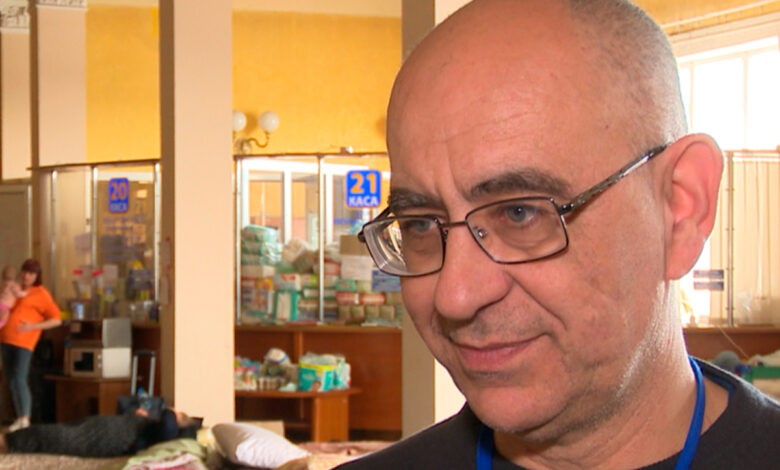How Ukrainians’ requests to psychologists have changed in the third year of the full-scale war: psychotherapist Yaroslav Ivanchyshyn on the results of the study

In wartime, people’s need for psychological support increases, as war becomes a powerful factor that changes people’s lives and psychological state. Every year, the consequences of the war are becoming more visible, increasing the emotional burden borne by every Ukrainian. The war causes a transformation of values, rethinking of life priorities and changes the range of requests that people make to psychotherapists. The longer it lasts, the greater the emotional burden it brings, and with it, the emotional needs of Ukrainians, their values and demands change.
As Yaroslav Ivanchyshyn, a psychotherapist at the Mental Help platform, which was created at the initiative of the UN Global Compact in Ukraine, explains, his team has a unique opportunity to track the dynamics of changes in Ukrainians’ needs thanks to its large-scale work. Since the start of active work in March 2022, they have provided more than 20,000 consultations and helped about 4,000 people. Such a large amount of information allows us to see how emotional requests and needs change over time.
According to the expert, in the first year of the war, most of the appeals were related to acute stress, anxiety and fear. People came to us with pain, a deep sense of loss of homes, security and stability. Memories of the traumatic events were fresh, and everyone wanted to share their story, to talk about what they had been through. At that time, counselling mostly helped people cope with traumatic experiences, process fresh emotional wounds, and find ways to overcome acute feelings of pain and anxiety. This was a particularly difficult stage, when psychotherapists worked to help people find calm and balance amidst the chaos.
However, over time, the nature of the referrals began to change. Today, in the third year of the war, the requests are of a different nature. According to Ivanchyshyn, people are now increasingly asking for deeper questions related to rethinking the meaning of life, changing life values, family crises and personal transformations. As the expert explains, war becomes a catalyst for such changes, forcing people to think about what is really important to them. People are looking for new meanings that help not only to adapt to new circumstances but also to find a strong foundation for their future life, which often seems uncertain and unpredictable.
At the beginning of the war, Ukrainians mostly chose survival strategies that allowed them to respond quickly to danger, act in response to external threats and focus on immediate needs. These were quick reactions aimed at overcoming intense emotions and ensuring safety. But now, as Ivanchyshyn emphasises, in the third year of the war, there is a different demand. People are turning to therapy, looking for deeper and longer-term strategies to help them find inner balance, adapt to life in conditions of constant uncertainty and accept new life challenges. They are beginning to look for ways to live even in situations where stability and predictability are absent.
Ivanchyshyn predicts that in the future, as the situation stabilises, even more people will need help in restoring emotional resources, reconnecting with loved ones and forming new life goals. Psychotherapy will play a crucial role not only in overcoming pain and trauma, but also in building new perspectives and a foundation for the future.
Ivanchyshyn also notes the importance of support even in extremely difficult conditions, as prolonged stress significantly exacerbates existing mental disorders. According to WHO estimates, about 22% of people affected by military conflicts have mental disorders, and Ukraine, unfortunately, is no exception. This is a major challenge for the Mental Help team, but they continue to provide counselling even when it requires adapting to difficult conditions such as power outages or lack of communication. There have been cases when psychotherapists have conducted counselling at petrol stations using mobile internet and power banks to avoid leaving clients without help.
According to Ivanchyshyn, psychotherapy is now not just a way to reduce psychological pressure or to survive traumatic events. It is becoming a key resource for people who feel a loss of stability, helping them to find inner support so that they are not left alone with their pain and grief. War takes a lot, but it should not deprive people of the right to psychological help, especially when they face unprecedented challenges.
“Prolonged stress exacerbates existing mental disorders. We see cases every day where anxiety, depression and post-traumatic stress disorder are becoming a daily reality for many.
According to the WHO, about 22% of people affected by conflicts suffer from mental disorders, and unfortunately, Ukraine is no exception.
What is particularly important is how we continue to work even in difficult conditions. Whether it’s a power outage or a lack of communication, we try not to let down the clients who need our support. It happened that consultations were held even at petrol stations, using the mobile Internet and power banks,’ the expert believes.
Yaroslav Ivanchyshyn emphasises that seeking therapy is an important step for anyone who feels that it is difficult to cope on their own. Everyone deserves support and understanding, especially in such difficult times when the future seems uncertain.





